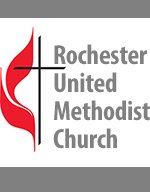Mark 3:1-8 New Revised Standard Version (NRSV)
Again he entered the synagogue, and a man was there who had a withered hand. They watched him to see whether he would cure him on the sabbath, so that they might accuse him. And he said to the man who had the withered hand, “Come forward.” Then he said to them, “Is it lawful to do good or to do harm on the sabbath, to save life or to kill?” But they were silent. He looked around at them with anger; he was grieved at their hardness of heart and said to the man, “Stretch out your hand.” He stretched it out, and his hand was restored. The Pharisees went out and immediately conspired with the Herodians against him, how to destroy him.
Jesus departed with his disciples to the sea, and a great multitude from Galilee followed him; hearing all that he was doing, they came to him in great numbers from Judea, Jerusalem, Idumea, beyond the Jordan, and the region around Tyre and Sidon.
Did You Know? –Source, New Interpreter’s Bible, Commentary Vol. 8
• The disciples are in awe of the massive temple in Jerusalem despite Jesus’ warnings not to be taken in by wealth and such grandeur.
• Apocalyptic writings in The Bible often speak to evil times in which the righteous can be led astray.
• In Mark, Jesus warns of false prophets, political turmoil, natural disasters and a young church criticized for opening itself to Gentiles.
• There is scholarly disagreement over when Mark was written. Was it before the destruction of the temple or after?
Some Thoughts on Today’s Reading
Have you ever heard people say they’d prefer to read the New Testament? This comment is often followed with something like, “I don’t like the Old Testament because of all the violence and wars.” There is a reason we read both the Old Testament (also called the First Testament), and the new because both connect. Jesus often refers to the ancient texts and we can see prophetic traditions and literary form in his words and actions in the Gospel writings.
These texts in Mark 13 are reflective of the apocalyptic literature of the First Testament. Our Bible Study group here at the church has been looking at this type of text as we’ve studied the Book of Daniel.
From a hopeful perspective, apocalyptic text offers hope and consequences for believers suffering and living in the margins of life. In the story of the Hebrew people, it generally follows a theme of God’s people being faithful then falling away from God, suffering and returning to God. We see this throughout the First Testament.
Jesus uses this approach as well as he talks to the disciples. As they stare wide-eyed at the impressive temple, Jesus tells them not to be led astray. Don’t be impressed. These great buildings, he says, will come down. He adds that many other terrible things will happen as the kingdom is born. “When you hear of wars and rumors of wars, do not be alarmed, he says. “This must take place, but the end is still to come. For nation will rise against nation, and kingdom against kingdom; there will be earthquakes in various places; there will be famines. This is but the beginning of the birth pains.” (Mark 13: 7-8)
For the disciples, his words are consistent with the struggle occurring at the time, as followers prayed for the kingdom of God. We pray today amidst all the turmoil Jesus predicted. He reminds us that these are birth pains as the kingdom unfolds. We must not be led astray by false prophets that would tell us otherwise.
Grace and Peace,
Pastor Pam

Rev. Pam Brokaw pastors both the Rochester and Oakville United Methodist Churches.
She is a graduate of the Seattle University School of Theology and Ministry, where she earned her Masters in Divinity.
